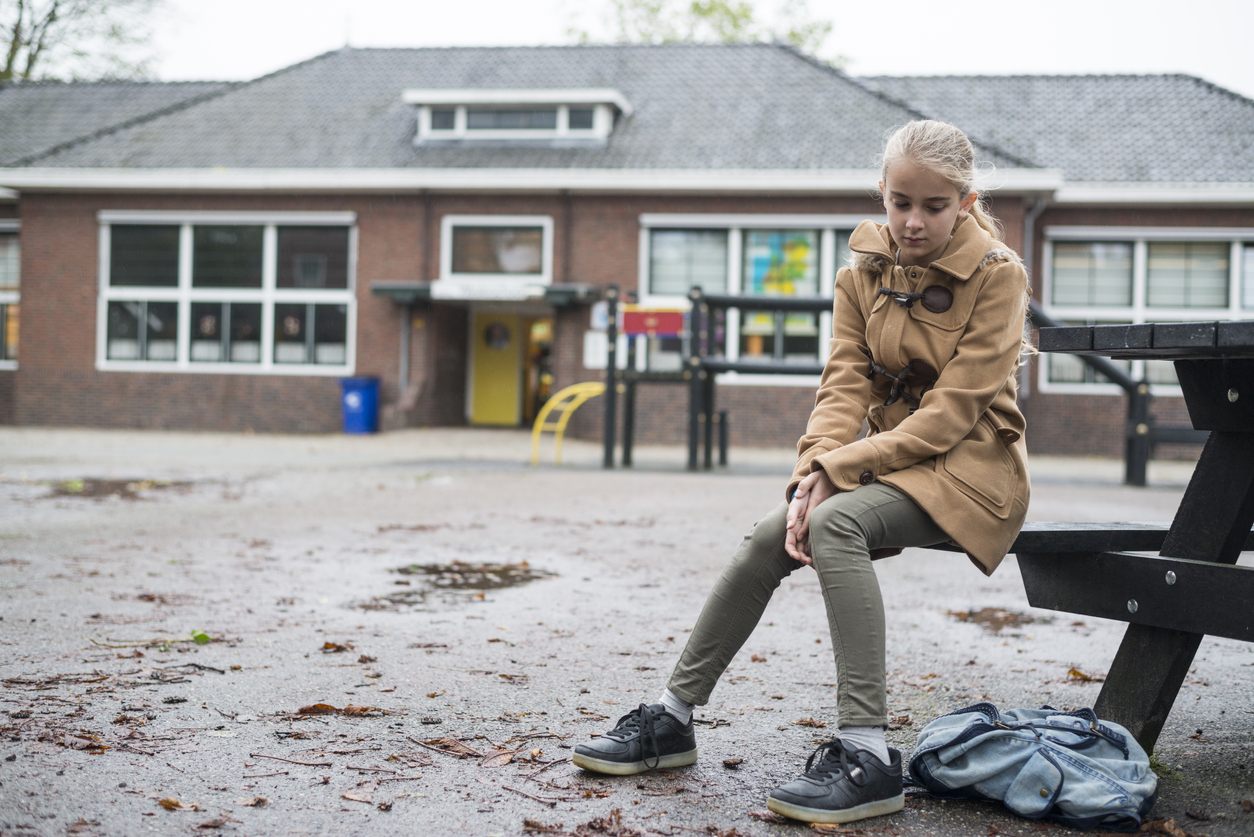Kindergarten math is my kind of math. I know this because I supervised a math lesson one day that consisted of the kids gluing construction paper eyeballs, mouths, and limbs onto a numeral to create some sort of creature. We turned “7” into a giraffe and “8” into an ant. But as unmath-like as the lesson was, there were still some kids who got discouraged—my own child being one of them.
Now, years later, he still has moments when he throws his hands up in defeat. All kids do. Shoot, all adults do! I know when I get discouraged, I try to nudge my thoughts toward positivity and growth, and I’ve noticed some of the words I use to do that are rubbing off on my kids. If you want to know how to build confidence in kids when they’re discouraged, here are 9 verbal nudges I’ve given my sons to help them shift from discouraging thoughts to encouraging ones.
1. Progress over perfection.
When your child’s test scores improve by five percentage points or he shaves eight seconds off his personal record in the mile run, celebrate it, because “perfect” is nonexistent, but progress is what gets you closer to your goals.
2. Hard is not impossible.
I got all A’s in school until algebra. I cried my way through homework and dreaded going to class every day. I still remember Mrs. Brady writing quadratic equations on the overhead projector, blue ink smudged down the edge of her hand. I won’t be much help when my kids take algebra, but where I can lend a hand is with their confidence. Was algebra easy for me? No. It was hard, but it wasn’t impossible.
3. You should be proud of yourself.
When my son took a bow after his performance in Annie Jr. I couldn’t help but tell him over and over again how proud I was. But one of the best tips for how to build confidence in kids is to focus on the internal. I want his sense of accomplishment to come from within, not from the praises of others. So now I tell him, “You should be proud of yourself,” or even better, I ask him if he’s proud of what he’s done.
4. Tomorrow is a new day.
Sometimes the best way to dig yourself out of a discouragement hole is simply to let today go. Teach your kids that joy comes in the morning and most problems from yesterday feel smaller after a good night’s sleep.
5. Plan A didn’t work. Thankfully the alphabet has 25 more letters.
When my kids were little and would ask to build a fort, I’d groan. I didn’t mind rounding up chairs and sheets and little clips, but I could never remember the right arrangement to make everything stretch. My kids got to see me struggle to get everything to sit just right so the fort wouldn’t collapse in on them. Every time a sheet would fall, I’d say, “Well, that didn’t work. Let’s try another way!” It’s a gift to teach your kids that things rarely work on the first try.
6. Momentum is messy.
I learned this one from speaker and writer Jon Acuff, but any parent who’s run behind a bike, held onto its seat, and yelled “keep pedaling” knows that forward motion sometimes leads to a crash. If your child is working on a new skill and trying to grow, he might hit a few snags. The mess of progress is better than tidily sitting still.
7. The best response to obstacles is to try anyway.
One fall day a few years ago, my dad made my sons an obstacle course in his back yard, and I watched them run up ramps, swing on a rope, and crawl under PVC pipes. At no point did they get to an obstacle and say, “So the course stops here?” We need to teach our kids the obstacles they encounter in life are challenges, not stop signs.
8. If your brain is a muscle, making mistakes is like weightlifting.
Think of the last time you messed up and what you learned. I forgot to pay a credit card bill after some Christmas purchases and had to pay a $30 late fee. Will I ever forget to pay that bill again? Absolutely not. If you want to know how to build confidence in kids, teach them to embrace mistakes as the life-shaping tools they are.
9. It doesn’t get easier. You get stronger.
The first time my son cranked up the lawnmower and paced the yard in 95-degree weather, I thought he was going to pass out. Months later, it was still hot and the grass was still thick, but he’d grown stronger. After watching him knock out the job, I reminded him that nothing had changed about the lawn. It was his technique and persistence that made the difference. Next time something seems difficult, he can remember that over time, strength will make it feel easier.
Tell us how to build confidence in kids. What are your favorite words of encouragement?










